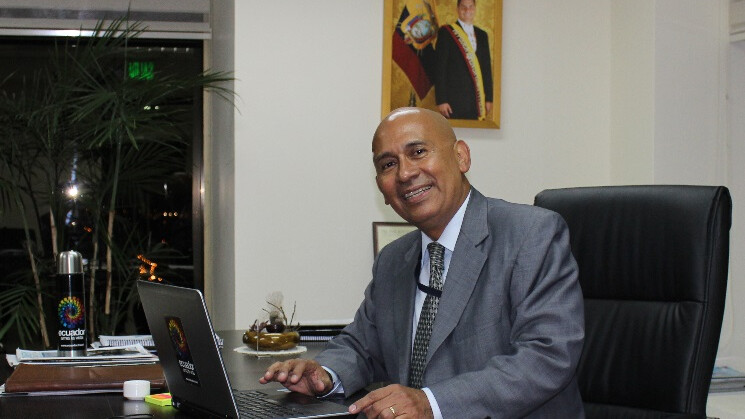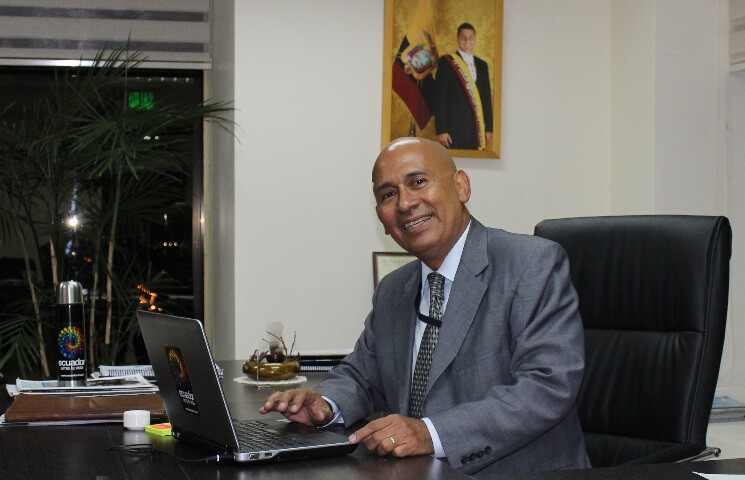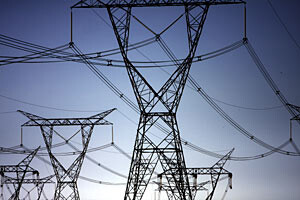Interview with Ecuador’s Vice-Minister of Foreign Trade, Juan Francisco Ballen Mancero
LatAm INVESTOR caught up with Ecuador's Vice-Minister of Foreign Trade to find out how his ministry is helping foreign investors come to Ecuador...

How can your Ministry help international investors that want to establish production in Ecuador for export to other countries?
We are building a public policy of foreign trade and investment which includes programmes, projects, strategies, actions and partners in order to generate a favourable business environment for investors. So we have an active policy for the attraction, promotion and maintenance of FDI.
For example we are working on the development of a One-Stop Investment Centre, which aims to help foreign investors establish their business and implement their investments in the country quickly and with minimal red tape. This will be achieved through a technological link that interconnects public and private entities involved in ‘settling’ the proposed investment.

In addition, the Ministry and Pro Ecuador (an export and investment promotion agency connected to the Ministry of Foreign Trade), are actively defining and promoting investment projects in priority sectors through its network of trade offices abroad. Pro Ecuador also offers an ‘after care’ service for foreign investors.
It should be noted that the Ecuadorian government has structured a system of incentives (tax and non-tax) that any international investor who wants to invest in the country can access and this is supported in the ‘Production Code’. In the case of an investment project oriented to export, the same Code provides special customs procedures to promote temporary tariff-free import of raw material and inputs needed for production.
Another option for foreign investors is the Special Economic Zones, where you can establish industries with differential treatment in tariff and tax matters.
What are Ecuador’s strongest export sectors?
One of the most important export sectors of Ecuador is fishing, which includes shrimp and tuna. These represented approximately 33% of non-oil exports in 2014. Another major sector is banana with 20% of non-oil exports.
"We have an active policy for the attraction, promotion and maintenance of FDI…"
Other important sectors are cocoa, flowers and gold with 6%, 6.4% and 8.5% of total non-oil exports respectively. The competitive advantages of these products stem from their world-renowned quality.
We have heard about attempts to change Ecuador’s productive matrix; what are the emerging areas of non-traditional exports that our readers should look at?
The sectors prioritised in the new production model have shown better levels of output and productivity during recent years. Some of the stars of this new exportable group are: paper, cardboard, rubber, pharmaceutical, dairy and metallurgical. These sectors are growing fast. For example they accounted for 9% non-oil exports by the year 2014, which was up from 8% in 2013 – demonstrating a significant increase.
Some people worry that the programme of ‘salvaguardias’ will hit Ecuadorian industry by pushing up the costs of imported inputs needed for production; should they be worried?
No. The modification of tariffs is an active policy framed in the national macro strategy for changing the Ecuadorian production matrix, which acts by boosting domestic production and substituting imports. So this will actually create opportunities for local producers.
As a sign of the carefulness with which this policy has been implemented, a direct communication channel with the private sector has been opened in order to hear, analyse and process the suggestions that they may have. Every tariff modification is designed with the private sector in mind so that domestic production is boosted.
What is your vision for Ecuador’s future external trade?
One very influential factor will be the change in the energy matrix. The construction of several hydroelectric plants will allow us to export electricity to Colombia, Peru and Chile.

Additionally, we’re working jointly with the International Trade Centre, which is a technical arm in foreign trade of UNCTAD, in order to define a methodology of calculation of trade in services, we’re sure that this category within the Ecuadorian foreign trade is important that provides technical advice, training and development, software development, among others, foreign entities and persons within and outside of Ecuador.
With regards to the volume of exports of goods, we have set aggressive growth targets for non-traditional export products.
Finally, in response to the strengthening of the US dollar on the world market, which increases the transaction price of our exports, the Committee of Foreign Trade (COMEX) has enabled a simplified system of conditional repayment of charges which will improve the competitiveness Ecuadorian exports, while fully complying with the rules of the World Trade Organization (WTO).